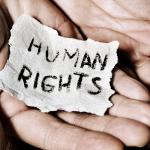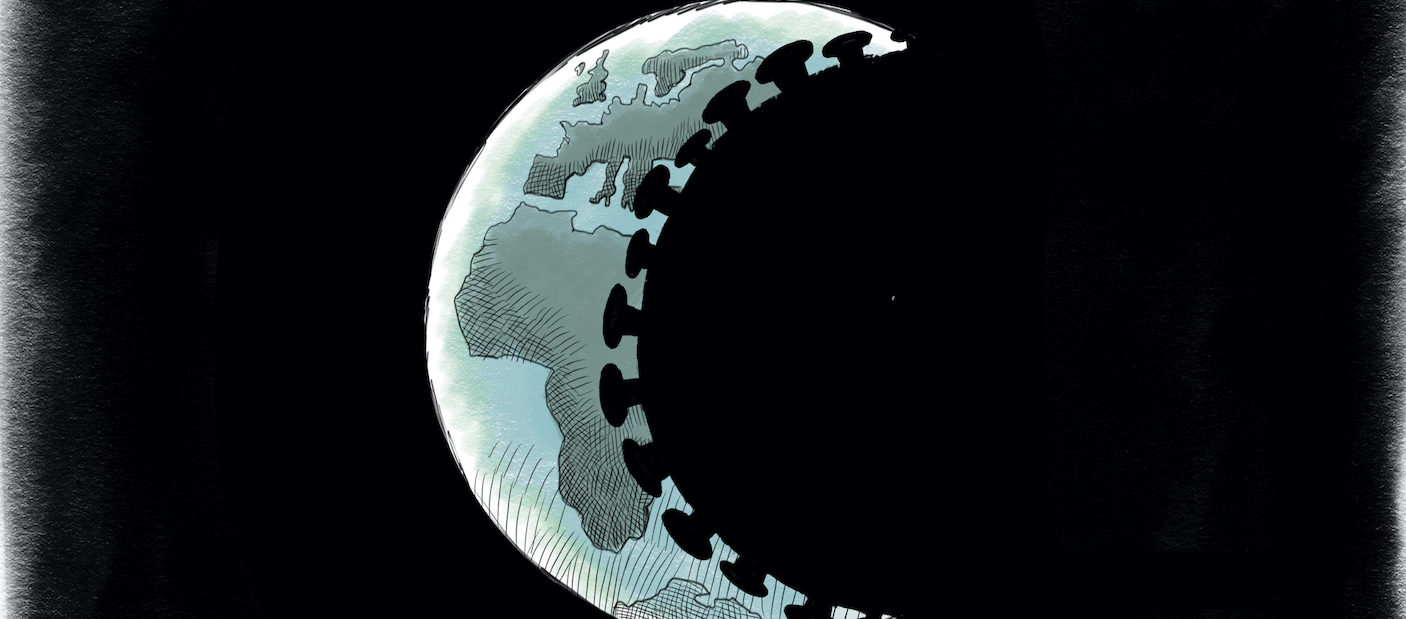WEAK SOCIAL SYSTEMS AND SWEEPING LOCKDOWNS
The International Covenant on Economic, Social and Cultural Rights upholds the right of everyone to the highest attainable standard of physical and mental health, and requires that states invest the maximum available resources in taking deliberate steps towards that goal. It also upholds related economic and social rights, such as the right to food, right to clean drinking water, right to form labour unions, and more.
However, these rights are weakly upheld in some of the wealthiest countries in the world. In response to President Trump’s threats to repeal the Affordable Care Act in 2017, the UN Special Rapporteur on the Right to Health wrote to warn the President that this would be considered a retrogressive measure in regard to the right to health, and one that would lead millions of Americans to lose access to healthcare. Similarly, the UN Special Rapporteur warned the UK in 2018 about the harm being done by austerity measures and the dismantling of the social safety net.
These warnings had little impact on the gradual defunding of social services, including healthcare, in both countries, with devastating results: over 100,000 deaths in the US, over 40,000 deaths in the UK and significant economic harm experienced by people who fall outside the social safety net in both countries. It is too early to measure the impact of these two countries in the global spread of the virus.
Abrupt lockdowns were the only means left to slow transmission after health systems failed to do so in many countries. However, the challenges of ensuring food security during lockdown have also been poorly addressed but have received very little attention thus far. The shutdowns of schools in both the US and UK revealed to many for the first time that millions of families rely on school meals to feed their families, especially once livelihoods collapsed.
CRIMINALIsATION, POLICING AND SURVEILLANCE
Lockdowns have brought with them the most expansive police and military presence in many countries since World War Two, including the deployment of national guards and paramilitary forces within national borders. Police have been tasked with enforcing lockdowns, including sometimes vague provisions and curfews. In many cases, police were neither adequately resourced or trained to do this work. Almost immediately, incidents of excessive use of force were reported from Wuhan to Mombasa to the suburbs of Paris – and this was even before the US erupted in national protests against generations of racialised police violence.
In a number of countries, exposure to Covid-19 has also been criminalised, despite decades of evidence from the HIV response that shows that penalising transmission is a waste of time and resources. Criminalisation heightens stigma and blame in ways that actively undermine the response, making many people reluctant to test or disclose their symptoms.
In response to the crisis, numerous European states have derogated from their human rights treaty commitments, taking steps to silence opponents and critics and target migrants and minority groups such as the Roma. In Hungary, parliament passed a “coronavirus law” that granted Prime Minister Orbán unchecked powers to suspend laws and rule by decree.
Covid-19-related censorship is on the rise in many countries, with new laws penalising “fake news” in Hungary and Cambodia, crackdowns on social media in Jordan, Morocco, Yemen and Vietnam; outright shutdowns of the internet in parts of Myanmar and in Kashmir; and prohibitions on using the word “coronavirus” in Turkmenistan and on Chinese social media.
Chinese censorship has been particularly damaging, as it slowed the early response to the initial outbreak. When Chinese doctors such as Li Wenliang first shared information about the virus with one another, they were called in by police and forced to apologise; a national propaganda campaign tried to discredit Dr Li. Citizen journalists like Chen Qiushi, who roamed the city of Wuhan speaking to taxi drivers and construction workers, began to draw attention to the fact that the virus had been known about by local officials much earlier than previously suspected. Chen was promptly disappeared and placed under “quarantine”, in which his family could not speak to him, followed by a fellow activist who spoke up about his case. Censorship and the disappearance of rights defenders has been endemic in China and similarly fuelled the spread of SARS in the early 2000s. It may be literally making the rest of the world sick: one modelling study found that if China had acted on early warnings about the virus, between 66% and 95% of Chinese infections could have been avoided.
A HEAVIER BURDEN ON SOME
The impact of Covid-19-related stigma falls heavier on some groups than on others: minority groups blamed for the virus (whether Muslims in India, people of Asian descent in the US or Africans in southeast China); the elderly, who may justifiably worry about being left to die in nursing homes or about the risk of discriminatory triage in some hospitals; or LGBTI people who face added stigma and discrimination in many countries.
Advocates for the rights of women and children report escalating rates of intimate partner violence, concealed due to severed social networks and closed workplaces and schools. The risks are even greater for women and children in displacement due to conflicts or climate disasters. They are not only unable to maintain safe distances to protect themselves from Covid-19 but also vulnerable to sexual violence in evacuation camps and exposed to immediate needs for soap, lotion and other necessities, which further exposes them to pressures for transactional sex. Sex workers who must continue to work in order to survive face heightened vulnerability, and must contend with the risks of arrest, extortion and abuse linked to expanded police powers.
In the face of these and other rights abuses, community networks have been lifelines to many of those most marginalised, providing food and emotional nourishment and support that enable those most vulnerable to survive. Human rights may be at risk under Covid-19, but the norms and movements mobilised in the past also offer guideposts for navigating our way out of this crisis. Such standards as transparency, accountability and non-discrimination are principles we can use to rebuild our broken world and heal it in the future.






